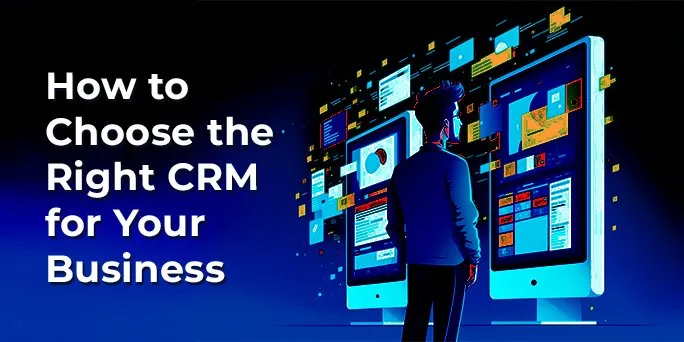Choosing the right CRM (Customer Relationship Management) system for your business can be a daunting task, but here are some key factors to consider when making your decision:
- Understand your business needs : Identify the specific business goals you hope to achieve with a CRM system. This will help you determine which features and functionalities are most important to your organization.
- Evaluate your budget : Determine how much your business can afford to spend on a CRM system. Some systems are more expensive than others, so it’s important to weigh the benefits against the costs.
- Research potential options : Research the different CRM systems available on the market and compare them based on their features, pricing, and customer reviews.
- Test the system : Once you have a shortlist of potential CRM systems, test them out. Many vendors offer free trials or demos, which can help you determine which system is the best fit for your business.
- Consider integrations : Check if the CRM system can integrate with other tools and software that your business uses, such as marketing automation, social media, or e-commerce platforms.
- Check for security and data privacy : Ensure that the CRM system you choose has robust security and data privacy measures in place to protect your customer’s information.
- Choose a vendor with good support : Select a vendor that offers good customer support and training resources to help you and your team get the most out of the CRM system.
Overall, selecting the right CRM system is crucial for the success of your business. Take your time to evaluate your options and choose a system that fits your needs and budget.
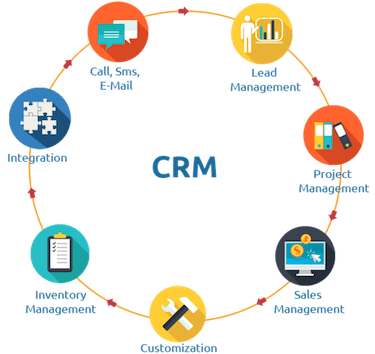
What Is CRM Software ?
CRM stands for Customer Relationship Management. CRM software is a type of technology that helps businesses manage and organize their interactions with customers and leads. The goal of CRM software is to improve customer relationships, increase customer retention, and ultimately, drive business growth.
CRM software typically includes a wide range of features and functionalities, such as customer data management, contact management, sales automation, marketing automation, and customer service automation. These tools help businesses keep track of customer interactions and preferences, streamline sales and marketing processes, and provide personalized service to customers.
One of the key benefits of CRM software is that it enables businesses to centralize customer data, making it easier to access and analyze. This data can be used to gain insights into customer behavior, identify patterns and trends, and make data-driven decisions about sales and marketing strategies.
Overall, CRM software is a powerful tool for businesses of all sizes and industries. It helps companies build better relationships with customers, improve their customer experience, and ultimately drive business growth by increasing sales and revenue.
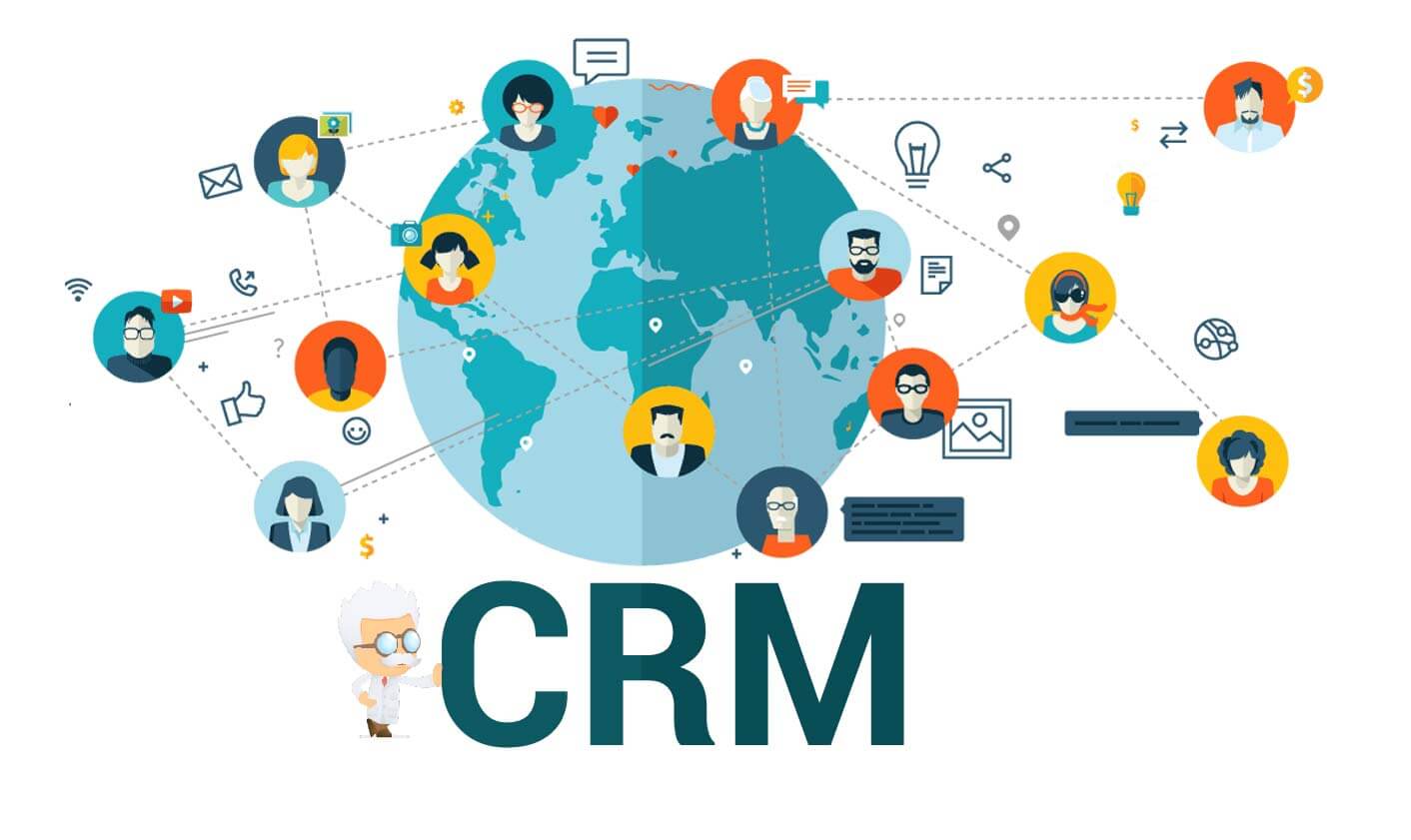
Do I Need a CRM ?
Whether or not you need a CRM (Customer Relationship Management) system depends on the size and complexity of your business, as well as your goals for growth and customer satisfaction.
If your business is small and you have a relatively small number of customers, you may be able to manage your customer relationships manually without the need for a CRM system. However, as your business grows and you acquire more customers, it can become increasingly difficult to keep track of customer interactions, preferences, and needs.
A CRM system can help you manage customer data more efficiently and effectively, by organizing it in a centralized database that is easily accessible to all team members. This can enable you to provide better customer service, track sales performance, and identify opportunities for growth and upselling.
Additionally, a CRM system can help automate repetitive tasks and streamline workflows, such as lead management, sales forecasting, and marketing campaigns. This can save your business time and resources, allowing you to focus on more strategic initiatives.
Overall, if you are looking to improve your customer relationships, streamline your sales and marketing processes, and drive business growth, a CRM system can be a valuable investment. It can help you stay organized and make data-driven decisions, ultimately improving your bottom line.
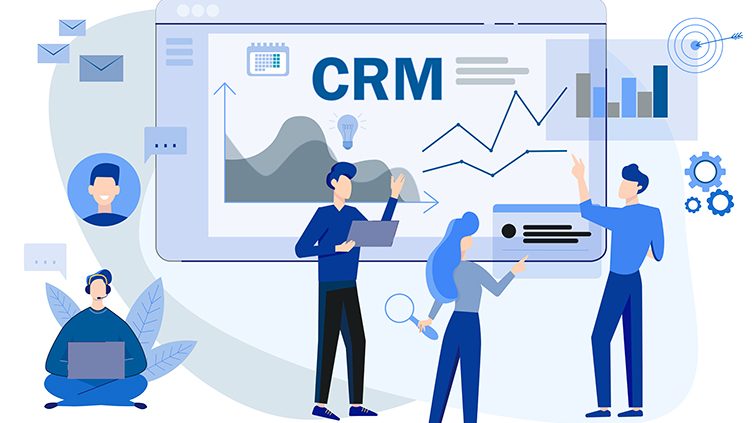
What Mistakes to Avoid When Choosing a CRM ?
Choosing the right CRM (Customer Relationship Management) system for your business can be a complex process, and there are several common mistakes that businesses should avoid:
- Not defining business needs : Not clearly identifying your business needs and goals can lead to selecting a CRM system that doesn’t meet your requirements.
- Focusing only on cost : Making a decision based solely on cost can lead to selecting a CRM system that doesn’t offer the necessary features and functionalities, or has limited scalability.
- Not testing the system : Not testing the CRM system before purchase can lead to choosing a system that is not user-friendly, lacks essential features, or has compatibility issues with existing software.
- Overlooking integration capabilities : Failing to consider the CRM system’s ability to integrate with other systems used by the business can lead to silos in data, making it difficult to achieve a complete view of the customer.
- Neglecting data privacy and security : Not assessing the CRM system’s data privacy and security features can lead to customer data breaches or non-compliance with data privacy regulations.
- Ignoring training and support : Not considering the CRM system’s training and support options can lead to a lack of user adoption and failure to realize the full benefits of the system.
By avoiding these common mistakes, businesses can select a CRM system that meets their needs and enables them to improve customer relationships, drive sales growth, and achieve their business goals.
.jpg)
How Much Does a CRM Cost ?
The cost of a CRM (Customer Relationship Management) system can vary widely, depending on several factors such as the size of the business, the required features and functionalities, and the chosen deployment model.
On-premise CRM systems typically require businesses to purchase the software outright and install it on their own servers. This can result in high upfront costs, ranging from a few thousand to tens of thousands of dollars, as well as ongoing maintenance and support fees.
Cloud-based CRM systems, on the other hand, typically charge a monthly or annual subscription fee based on the number of users and the required features. These fees can range from around $10 to $300 per user per month, depending on the level of customization and integration required.
Additionally, some CRM systems may charge additional fees for add-ons, integrations, or customization services, which can add to the overall cost.
It’s important for businesses to consider not only the upfront and ongoing costs of a CRM system, but also the potential return on investment (ROI) and business benefits that the system can deliver, such as improved customer relationships, increased sales and revenue, and streamlined workflows.
Ultimately, the cost of a CRM system will depend on the specific needs and requirements of the business. It’s important for businesses to carefully evaluate their options and select a CRM system that fits their budget and can deliver the desired business outcomes.
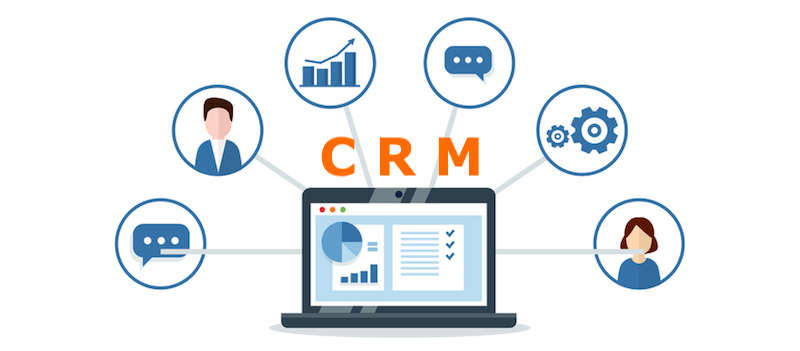
How to Maintain a CRM ?
Maintaining a CRM (Customer Relationship Management) system is important to ensure it continues to deliver value to the business and supports customer relationships. Here are some tips for maintaining a CRM system:
- Regularly update customer data : Keeping customer data up to date is crucial for accurate reporting and analysis. Make sure to regularly review and update customer information, including contact details, preferences, and interactions.
- Provide ongoing training : Offering ongoing training and support for users can help ensure that they are using the CRM system effectively and efficiently, which can improve user adoption and the overall success of the system.
- Regularly review reports and analytics : Reviewing reports and analytics can help identify areas for improvement and inform decision-making. Regularly reviewing and analyzing data can help businesses optimize their CRM strategies and improve customer relationships.
- Maintain data privacy and security : Protecting customer data is important for maintaining trust and compliance with data privacy regulations. Make sure to regularly assess and update data privacy and security measures to ensure the CRM system remains secure.
- Continuously optimize workflows : Continuously optimizing workflows can help streamline processes and improve efficiency. Regularly reviewing and optimizing workflows can help businesses get the most out of their CRM system.
By following these tips, businesses can maintain their CRM system effectively and ensure that it continues to support their customer relationships and drive business growth.
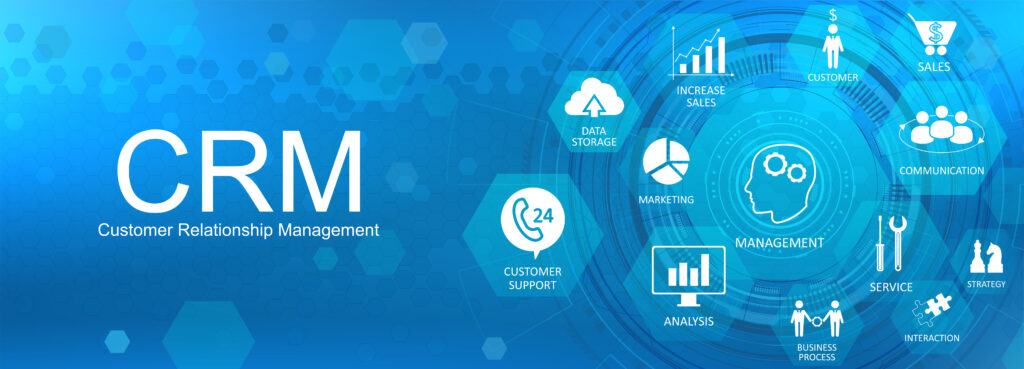
What Are the Best CRMs ?
There are numerous CRM (Customer Relationship Management) systems available on the market, each with its own set of features and functionalities. Here are five of the best CRMs currently available:
- Salesforce : Salesforce is a cloud-based CRM system that offers a range of features, including sales automation, customer service, marketing automation, and analytics. It’s a highly customizable system that can be tailored to meet the specific needs of businesses of all sizes.
- HubSpot : HubSpot is a cloud-based CRM system that offers a free version as well as paid plans. It includes features for marketing, sales, and customer service, and is known for its ease of use and all-in-one platform.
- Zoho CRM : Zoho CRM is a cloud-based system that offers a range of features, including sales automation, marketing automation, and customer service. It’s known for its affordability and flexibility, making it a popular choice for small and medium-sized businesses.
- Microsoft Dynamics 365 : Microsoft Dynamics 365 is a cloud-based CRM system that offers a range of features, including sales automation, marketing automation, and customer service. It’s known for its integration with other Microsoft products and is popular among enterprise-level businesses.
- Pipedrive : Pipedrive is a cloud-based CRM system that focuses on sales automation and pipeline management. It’s known for its visual approach to sales management and its ease of use.
Ultimately, the best CRM for a business will depend on its specific needs and requirements. It’s important for businesses to evaluate their options carefully and select a CRM system that fits their budget and can deliver the desired business outcomes.
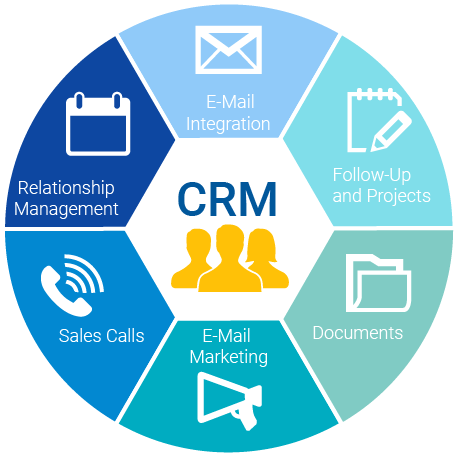
Why does your business need a CRM solution ?
A CRM (Customer Relationship Management) solution is an essential tool for businesses of all sizes to manage and improve their customer relationships. Here are some of the key reasons why a business needs a CRM solution:
- Improved customer relationships : A CRM system enables businesses to manage and track customer interactions and preferences, which can lead to improved communication, better understanding of customer needs, and more personalized engagement.
- Streamlined workflows : A CRM system can automate and streamline processes, such as lead management and sales forecasting, which can save time and improve efficiency.
- Enhanced collaboration : A CRM system can provide a centralized platform for teams to collaborate and share information, which can improve communication and coordination between departments.
- Better data management and analysis : A CRM system can help businesses collect and analyze customer data, such as demographics and purchase history, which can inform decision-making and improve marketing and sales strategies.
- Increased revenue and profitability : By improving customer relationships, streamlining workflows, and enabling better data management and analysis, a CRM system can help businesses increase revenue and profitability.
In summary, a CRM solution is crucial for businesses to manage and improve their customer relationships, streamline workflows, enhance collaboration, and drive revenue growth. With the right CRM system in place, businesses can improve their overall efficiency and profitability.
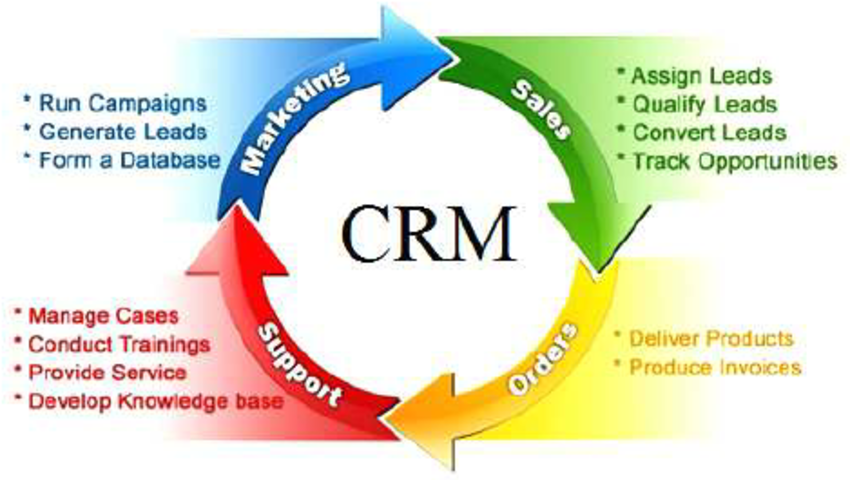
Will the CRM grow with you ?
When selecting a CRM (Customer Relationship Management) system for your business, it’s important to consider whether the system can grow and evolve with your business over time. Here are some factors to consider:
- Scalability : The CRM system should be scalable to accommodate your business growth. Ensure the system can handle increasing numbers of customers, leads, and transactions without losing performance or functionality.
- Flexibility : The CRM system should be flexible enough to adapt to changing business requirements. This could include the ability to customize the system with additional features or integrations, as well as the ability to modify workflows and business processes as needed.
- Upgrades : The CRM system should receive regular updates and upgrades to ensure that it stays up to date with the latest technology and trends. This will ensure that the system continues to deliver value and remains relevant over time.
- Support : Ensure that the CRM provider offers ongoing support and resources to help you get the most out of the system. This could include training, documentation, and technical support.
By considering these factors, you can choose a CRM system that can grow and evolve with your business. A CRM system that can accommodate your needs and requirements over time will provide long-term value and help you achieve your business goals.

Conclusion :
Choosing the right CRM (Customer Relationship Management) system is critical for businesses to manage and improve their customer relationships, streamline workflows, and drive revenue growth. To choose the right CRM system, businesses should consider their specific needs and requirements, such as budget, scalability, flexibility, and ease of use. It’s important to involve key stakeholders in the decision-making process, including sales, marketing, and customer service teams. Evaluating multiple options, testing the system before purchase, and considering customer reviews and feedback can help businesses make an informed decision. Once a CRM system has been chosen, it’s important to maintain the system through regular updates, data management, and staff training to ensure maximum value and return on investment. By following these guidelines, businesses can choose a CRM system that fits their specific needs and requirements and drives long-term success.

